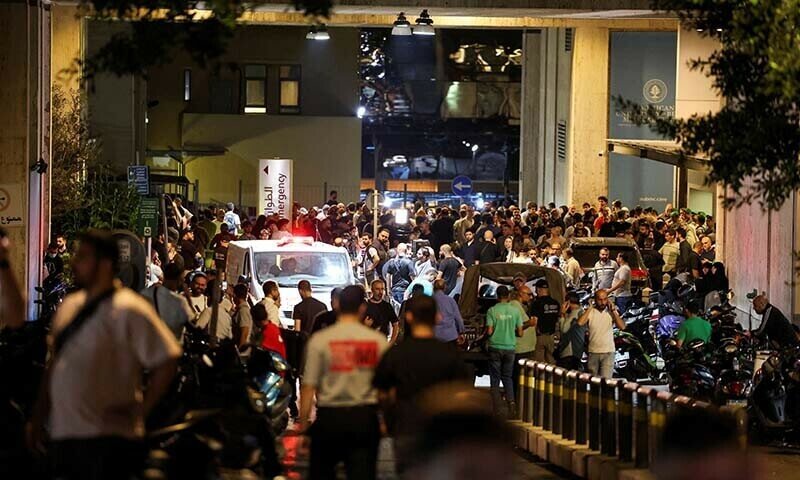A devastating attack in Lebanon has left at least nine people dead and almost 3,000 injured, sparking fears of reprisals against Israel. Notably, the Deadly Pager Attack on Lebanon has caught Hezbollah off guard, exploiting its adoption of low-tech pagers to prevent targeted assassinations.
Hezbollah’s Response
In response, Hezbollah has accused Israel of being behind the blasts, vowing to deliver “fair punishment” for the Deadly Pager Attack on Lebanon. Similarly, Lebanese Information Minister Ziad Makary condemned the attack as “Israeli aggression.” However, the Israeli military has not commented directly.
Furthermore, Gold Apollo’s founder, Hsu Ching-Kuang, revealed that a European company, not Gold Apollo, manufactured the pagers. Moreover, Hezbollah had adopted these pagers to prevent mobile phone tracking.
In the aftermath, hospitals were overwhelmed, with a field hospital set up in Tyre to accommodate the wounded. Additionally, Iran’s ambassador to Beirut, Mojtaba Amani, was among those injured. Meanwhile, a Hezbollah source revealed that the attack may be linked to an alleged assassination attempt on a former top Israeli defense official.
Consequently, this development raises concerns about escalating tensions between Israel and Hezbollah. As a result, US officials are working to de-escalate tensions, fearing Israeli Prime Minister Benjamin Netanyahu may order a ground invasion of Lebanon.
Moreover, the Deadly Pager Attack on Lebanon threatens to derail US efforts to prevent Iran’s retaliation against Israel. Experts consider this attack a significant counterintelligence failure for Hezbollah. Jonathan Panikoff, former US deputy national intelligence officer in the Middle East, stated, “This would easily be the biggest counterintelligence failure that Hezbollah has had in decades.”
Currently, the situation remains uncertain. As the crisis unfolds, Hezbollah’s response remains unclear. Meanwhile, the Middle East is on high alert. The international community watches anxiously, awaiting Hezbollah’s next move.
In addition, the attack’s impact on Gaza ceasefire talks remains uncertain. US State Department spokesperson Matthew Miller said, “It’s too early to say.” Meanwhile, Hamas described the attack as an “escalation” that would lead to Israel’s defeat.









